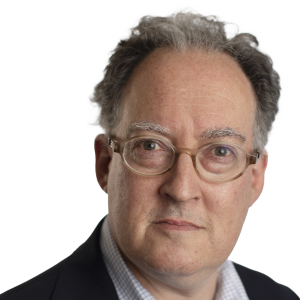Vladimir Putin’s survival strategy is lies and violence


Roula Khalaf, Editor of the FT, selects her favourite stories in this weekly newsletter.
When a government starts murdering its critics in the streets, it has crossed the line into barbarism. President Vladimir Putin of Russia is fond of accusing the administration in Ukraine of fascism. But it is the aggressive, self-pitying nationalism whipped up by Mr Putin — allied to the persecution and now murder of his domestic opponents — that is truly reminiscent of the politics of Russia and Germany in the 1930s.
No outsider can know if Mr Putin ordered the killing of Boris Nemtsov, the opposition leader gunned down within sight of the Kremlin. But the Russian president and his acolytes undoubtedly created the atmosphere of nationalist paranoia that made his assassination permissible. State television had repeatedly labelled Nemtsov, a critic of Russia’s war in Ukraine, a “traitor”.
Just weeks before his death, Nemtsov had told a Russian newspaper: “I’m afraid Putin will kill me.” The fear was understandable because vocal critics of the president have a habit of ending up dead. They included the investigative journalist, Anna Politkovskaya, shot in Moscow in 2006; and the former Russian agent, Alexander Litvinenko, poisoned in London in the same year.
The inquiry into the death of Litvinenko is taking place in London at the moment. Speaking at its opening, Ben Emmerson QC argued that the “trail of polonium” that poisoned Mr Litvinenko “leads . . . directly to the door of Vladimir Putin’s office.” Andrei Lugovoi, the man accused of administering the poison, was not extradited to Britain. Instead, he was elected as a member of Russia’s parliament.
Given this dismal record, it is impossible to take the Putin government’s investigation of the Nemtsov murder seriously. Unleashing violence and then lying about it has become standard operating procedure for Mr Putin’s Kremlin — from eastern Ukraine to the streets of Moscow.
As well as providing a cover story and an alternative reality, Mr Putin’s lies flaunt his impunity. Those who choose to accept his falsehoods are either acknowledging his power or proving their own stupidity. Either outcome is acceptable to the Kremlin.
The Nemtsov murder fits into a pattern of recent lawless Russian actions. In the past year, Russia has forcibly annexed Crimea, part of a neighbouring country. It has provided weapons to rebels in eastern Ukraine, who then shot down a civilian airliner killing 298 people. It has broken diplomatic deals and violated ceasefires. It has flaunted its nuclear arsenal and has flown nuclear bombers over the English Channel. Those Russians brave enough to protest have been vilified — and now murdered.
Mr Putin has convinced large parts of the Russian public and some foreign apologists that his actions are driven by a legitimate defence of national interests. In fact, as critics such as Nemtsov pointed out repeatedly, Mr Putin is motivated by a much narrower cause — his own personal survival.
A little over two years ago, thousands of demonstrators marched through the streets of Moscow, protesting against electoral fraud by Mr Putin’s United Russia party. One banner that I witnessed on that march bore the slogan “Putin = Gaddafi”: a provocative comparison, given the former Libyan dictator’s gruesome fate.
Mr Putin’s fear of losing power was further stoked by the revolution in Ukraine last year. His determination to prevent a similar “colour revolution” in Moscow and to save his own skin is the red thread that connects all his actions. Confrontation with the west over Ukraine has boosted his poll ratings and provided the cover for a crackdown on the opposition. It is probably no coincidence that Nemtsov was murdered just days before he was due to lead a protest march in Moscow. The Nemtsov murder, in turn, makes it even less likely that Mr Putin will ever risk voluntarily leaving the Kremlin.
The Putin government’s record of lies and violence should now prompt a further reappraisal. Mr Putin has shown that he is a threat to his own people and to neighbouring countries. It would be wise to assume that he is also a threat to the west.
In depth

Pro-Moscow separatists in eastern Ukraine have escalated the political turmoil that threatens to tear the country apart
Further reading
Efforts at dialogue with the Russian leader have proved largely futile. Instead, the west should concentrate on containing Russia — as it once contained the Soviet Union. That should mean increased economic aid to Ukraine. It should mean increased military spending and a stronger Nato presence in Poland and the Baltic states. And it should mean tightened economic sanctions on Russia, aimed particularly at the ruling elite.
The Kremlin will characterise all this as “Russophobia”. As far as I am concerned, nothing could be further from the truth. Over the past decade, some of the most impressive and memorable people that I have met have been Russians — including Nemtsov himself. For a Russian to choose to take a prominent role in opposing Mr Putin requires a physical courage and intellectual stubbornness that can be awe-inspiring — particularly if you live in a safe, law-governed country such as Britain.
Boris Nemtsov paid for his courage with his life. But in an interview given to the Financial Times, just before his death, he charted a way forward: “Putin lies. But he can’t hide things forever . . . We need healthy patience.”
——————————————-
Letters in response to this column:
Nato presence no threat to Russians at home / From Michael Vavrinek
Sanctions should extend to Russia’s official media / From Krzysztof Bobinski
Assassination shares date with Reichstag Fire / From Thomas Niles
Comments